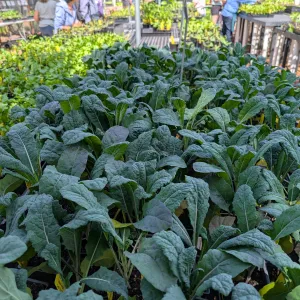
As climate change in California becomes more palpable, local gardeners are feeling the literal heat. In a recent episode of KQED Forum, host Alexis Madrigal brought together a panel of gardening experts to discuss how rising temperatures, inconsistent rainfall, and urban microclimates are reshaping the way we grow our favorite summer crops, like tomatoes and zucchini. The conversation served as both a practical guide and a thoughtful reflection on the role of gardening in a warming world.
Among the guests was Allyson Greenlon, Master Gardener Coordinator with the UC Cooperative Extension in Alameda County, who offered practical insights. For urban gardeners trying to grow food and build resilience, she stressed the importance of paying close attention to your immediate environment. With the Bay Area’s famously varied microclimates, she encouraged listeners to be observant: what works in sunny Oakland may not work in foggy Richmond. “Your backyard might be a totally different world from your neighbor’s,” she noted, urging gardeners to track local conditions year by year.
One of the standout moments in the discussion was Greenlon’s passionate advocacy for native plants. Not only do they thrive in California’s natural rhythms of drought and seasonal shifts, but they also reduce reliance on chemical inputs and excessive watering. “When you plant natives, you’re not just gardening — you’re participating in habitat restoration,” Greenlon emphasized. By choosing species that have evolved alongside local wildlife and climate, gardeners can create mini-habitats that support pollinators, birds, and ecological health—while also saving time and resources.
Beyond botany, the episode touched on the intersection of gardening and social equity. Greenlon reminded listeners that in many communities, urban gardens serve as vital sources of fresh food, green space, and collective care. She sees these spaces as more than aesthetic or culinary ventures—they’re opportunities to build community resilience, especially when designed with intention and rooted in sustainability. When we choose to grow food with native plants and climate-forward practices, we’re also choosing to nourish our neighborhoods.
Whether you’re planting your first tomato or transforming your entire yard, Greenlon and the other panelists make it clear: gardening is no longer just about what grows—it's about how we grow it, and who we grow it for.
Want to listen to the full episode? Click here to tune in on KQED Forum
